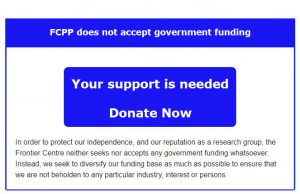In 1991 I joined the amazing world of the internet for the first time. In those days, before webpages and online graphics, it was a world of text and information. We were the select few, who were often regarded with scorn by society for wasting our time online. Many of us believed that we saw a future where this new platform would allow us to communicate more readily, to pull down the barriers between peoples. This was just a few short years after the fall of the Berlin Wall and it felt like all of the other walls might come down, as well. This egalitarian frontier, where your gender, ethnicity and sexuality were irrelevant and you could be yourself freely seemed like the future. Playing text-based games with people from all over the world seemed so new and incredible. We went from planning long distance phone calls a week in advance to sending messages on the spur of the moment.
Many of us, I don’t want to speak for everyone, truly believed that this frontier would change society and would lead the way in bringing us to a place of respect for and cooperation with others. We had been told by our teachers that if you knew someone, it was harder to hate them. If we were exposed to more ideas, then we would be closer to understanding other people and to be able to be more knowledgeable about the world. The opposite seems to have happened; in the flood of information, people are not capable of discerning fact from reality. Satire has become indistinguishable from reality. Hatred and anger appear to be the environment of the internet.
Thirty years later, looking back on this naivete, it seems almost preposterous that we could be so mistaken. Even before the advent of social media, the tone of the internet had been becoming more negative and hostile. People who, before access to easily dispersed websites, had been loners with strange ideas suddenly found movements of like-minded individuals. They started to create bubbles of self-reinforcing viewpoints, encouraging each other in their beliefs. 
And then social media came along. Facebook wasn’t the first social media platform, but it has become the dominant venue. Mark Zuckerberg has said that he built Facebook because he struggled to make friends and felt this platform would help him. It has gone from being a quaint platform for people to share photos and plan get togethers to a weaponized monstrosity capable of influencing elections and shifting society’s moral views. Religious organizations, political movements, hate groups and corporations vie for our attention on a moment-to-moment basis. Headlines of dubious authenticity (or even flagrant lies) scream across our feed, to get us to “click the link” and thereby generate some valuable advertising revenue for the creator. These ad generators are almost innocuous in the current field, their motives are obvious and base, they do this to make money. The far more insidious are the people and groups who try to manipulate our thoughts by pushing lies for which they can never be forced to prove or recant. These scurrilous fictions are not just entertainment, they are harmful to individuals and poisonous to our society and governments.
It would seem that the only way for us to reclaim this lost potential paradise is by living a fiction, allowing governments to more tightly regulate activity in the online space. But is that really the route we want? Unless billions of people suddenly decide that they will be kind and friendly to one another, it would seem that the future will be either a dystopian version of Cyberpunk with corporations, cultists, and conmen owning the internet, or else an Orwellian future of government censorship and control. Neither will get us back to the promised paradise. In Joni Mitchel’s song “Big Yellow Taxi”, she sang that they paved paradise to put up a parking lot. It would seem that we’ve paved paradise to put up a neon billboard, a mega church, a big box store and a KKK chapter.
Eamonn Brosnan is a research associate with the Frontier Centre for Public Policy.
Photo by Tatiana Syrikova from Pexels.



